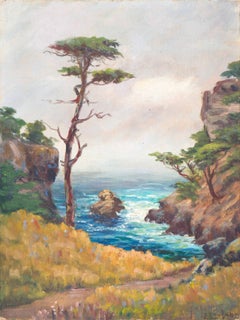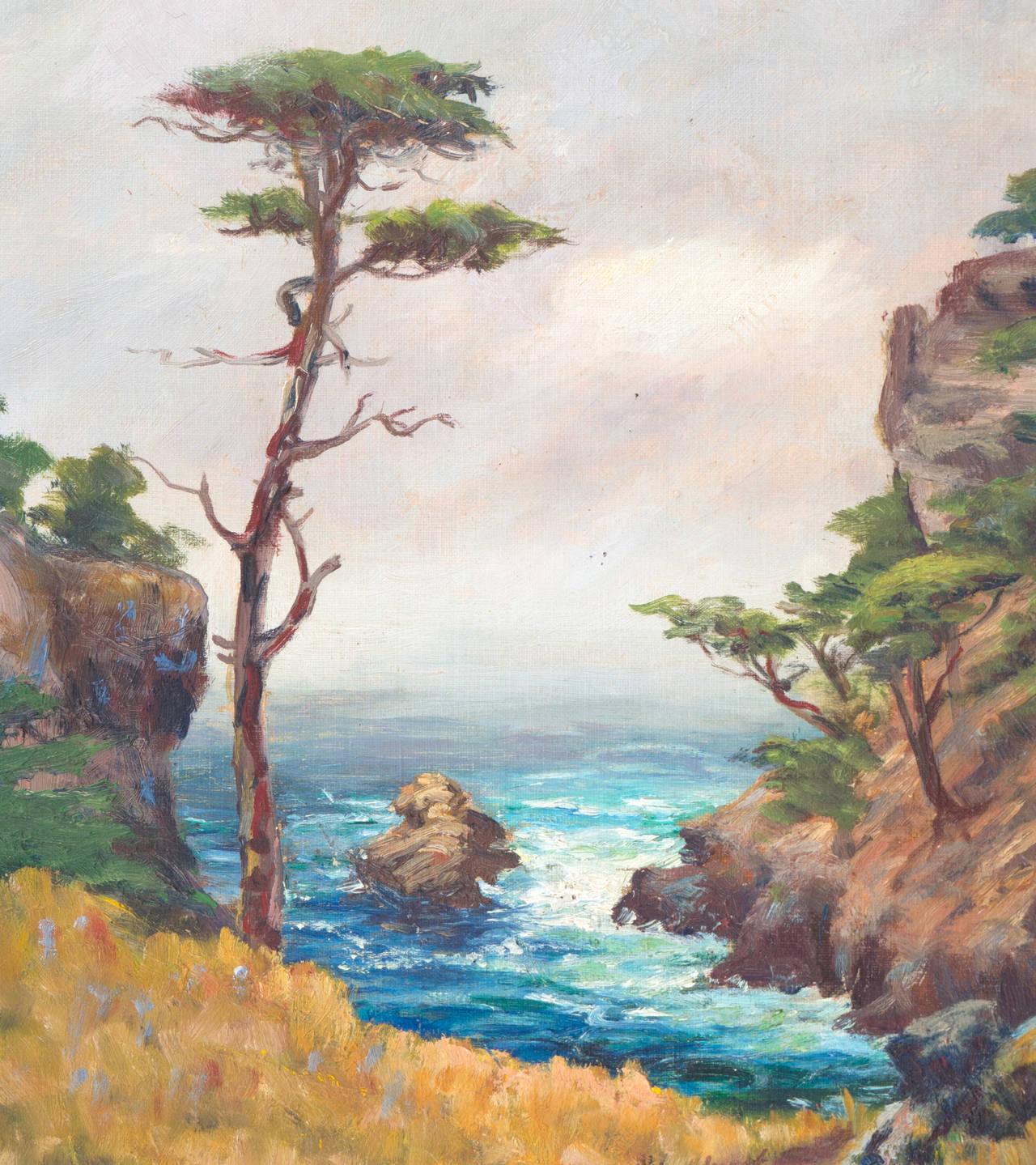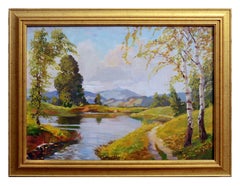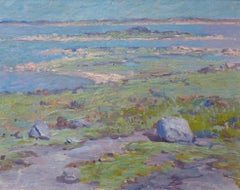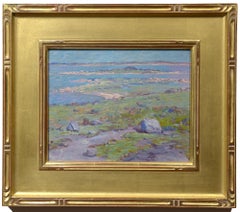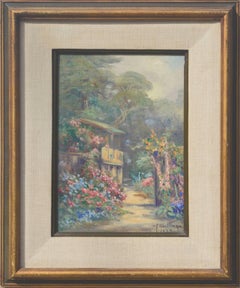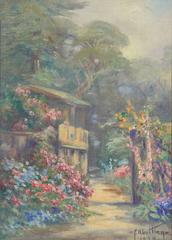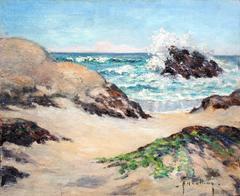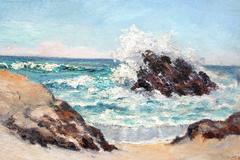Francis Harvey Cutting, also known as, Frank was born on a farm near Riceville, Iowa, on October 8, 1872. He moved to California in 1893 and settled in Campbell. After graduation from San Jose State College, he taught school for a short while near Paso Robles but soon opted for an art career. During the 1920s, Cutting had a studio nearby in Pacific Grove, where he studied with William Adam, Arthur Hill Gilbert, Charles Harmon and Frank Pebbles. Cutting came from his birthplace in Iowa with his parents to settle in the Santa Clara valley, when a very young lad, and always has lived and painted in this area. He was a nature lover and the stately redwoods inspired some of his most interesting canvases. Cutting then turned to the portrayal of a fruit orchard in full blossom, a field of poppies or a view of the Pacific enshrouded in mist. He is best known for his landscapes. Cutting always used oils as his primary medium with occasional forays into watercolor. Many of his paintings have been purchased by schools and clubs as well as by individuals for their private collections. In hundreds of homes throughout California, the Cutting paintings are treasured possessions. Among printed reproductions in color of his paintings have been more than 20 for postcards done by California Art and Engraving company, a firm which commissioned Cutting to paint about half of the old California Missions. He was a member of the Santa Cruz Art league for several years and has exhibited work in state-wide exhibitions many times. Cutting’s work has been hung in the Palace of the Legion of Honor, Gump's Art Gallery, Graves Art Gallery, Rabjohn and Morcom, all of San Francisco and in Monterey, Carmel and state and county fairs. In 1927, Cutting built a home with a studio at 125 Harrison Avenue in Campbell and remained there until his death on June 8, 1964. A prolific painter and Impressionist, he used a bright palette to create landscapes of Yosemite, Grand Canyon, Yellowstone, Pacific Grove, Columbia River, Crater Lake, the Redwood Highway, Death Valley and the Santa Cruz mountains.
Cutting exhibited at San Jose State College, 1897, 1926; California State Fair, 1923, 1930–32; Stanford University Art Gallery, 1925, 1928, 1933, 1939; Kiwanis Club (Campbell), 1927 (solo); Oakland Art Gallery, 1932, 1934; Santa Cruz Art League, 1934, 1937; Gump's Department Store California Palace of the Legion of Honor, the 1930s; Stanford Art Gallery, 1925, 1928, 1933, 1939 (with Otis Hyde); and California State Fairs.
(Biography provided by Robert Azensky Fine Art)
